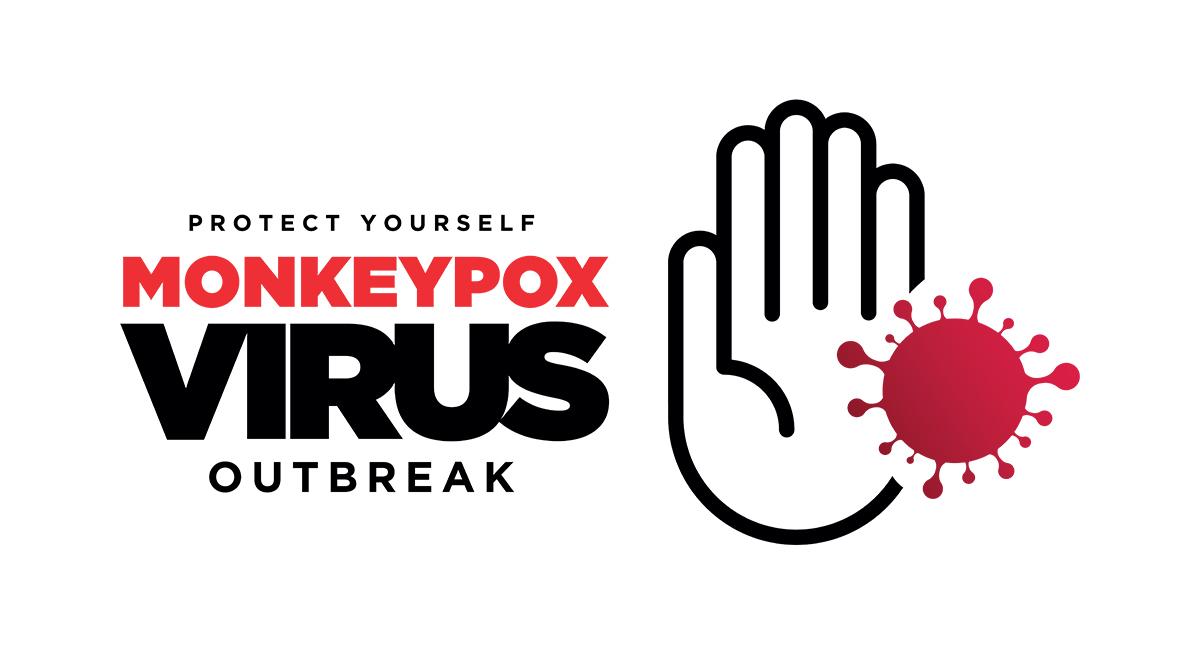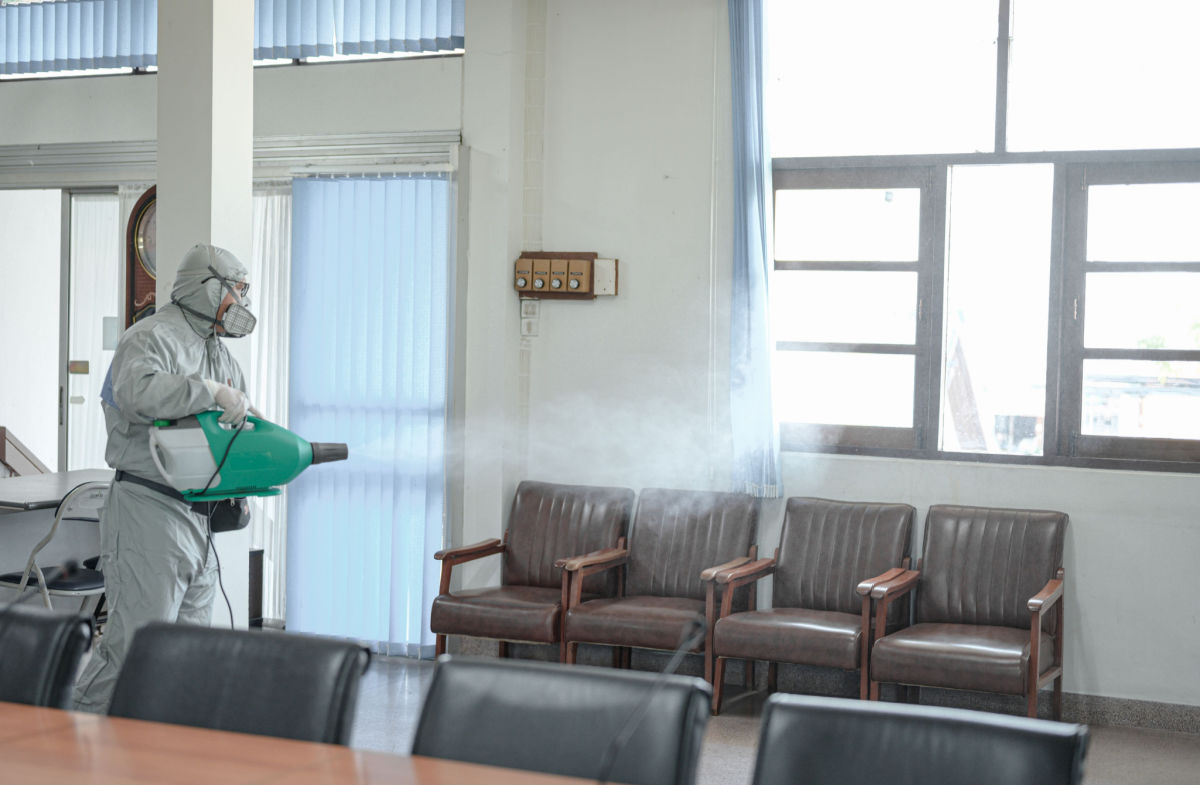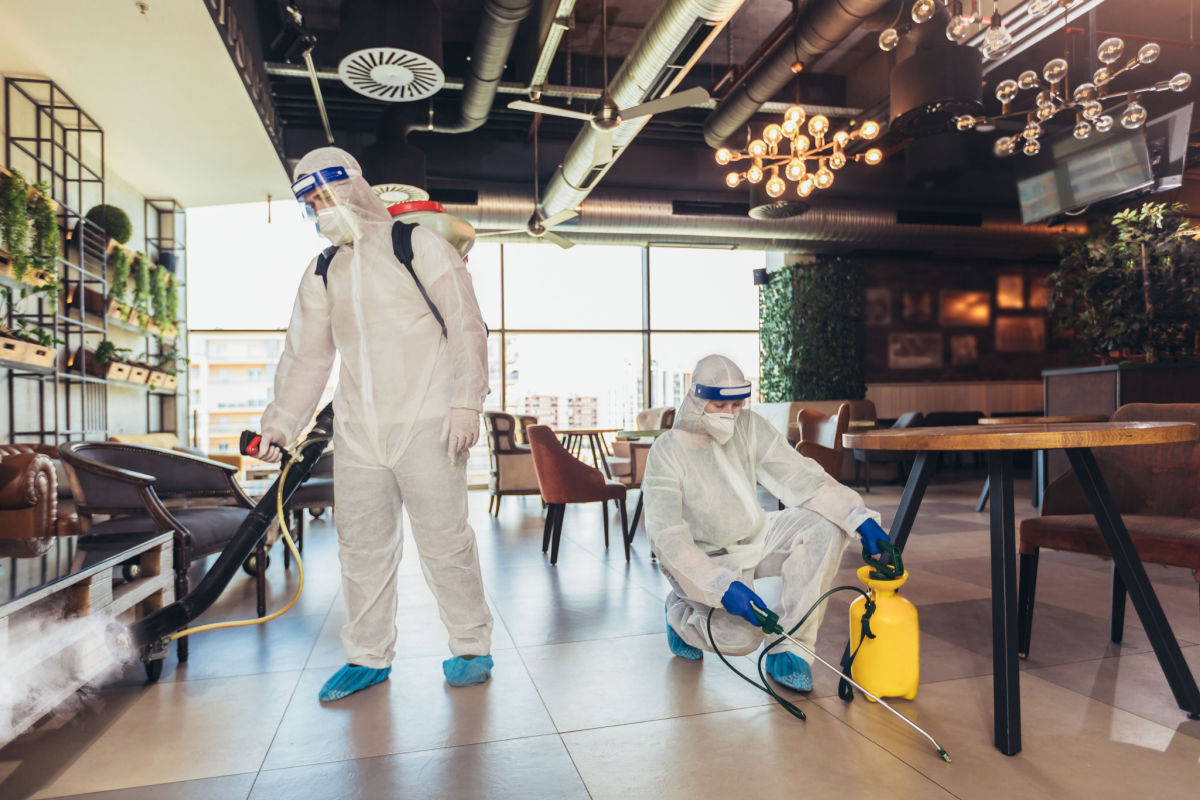Monkey Pox Disinfection in Commercial Spaces
After the Coronavirus pandemic hit the world, our society is justifiably anxious about any new viruses and conditions that can make us scared again. Before we had the time to adjust to our “normal lives” again, Monkey Pox came and scared us once more. Many people are now wondering what Monkey Pox is, how dangerous it is, and how they can protect themselves from it. Managers of stores, businesses, and other commercial spaces are worried about keeping their workplaces clean for their clients and employees, as well as themselves. We are glad to tell you that, as long as you take the proper preventive actions and hire the right professionals, you can sleep well at night knowing that your home and workplace are safe from Monkey Pox.
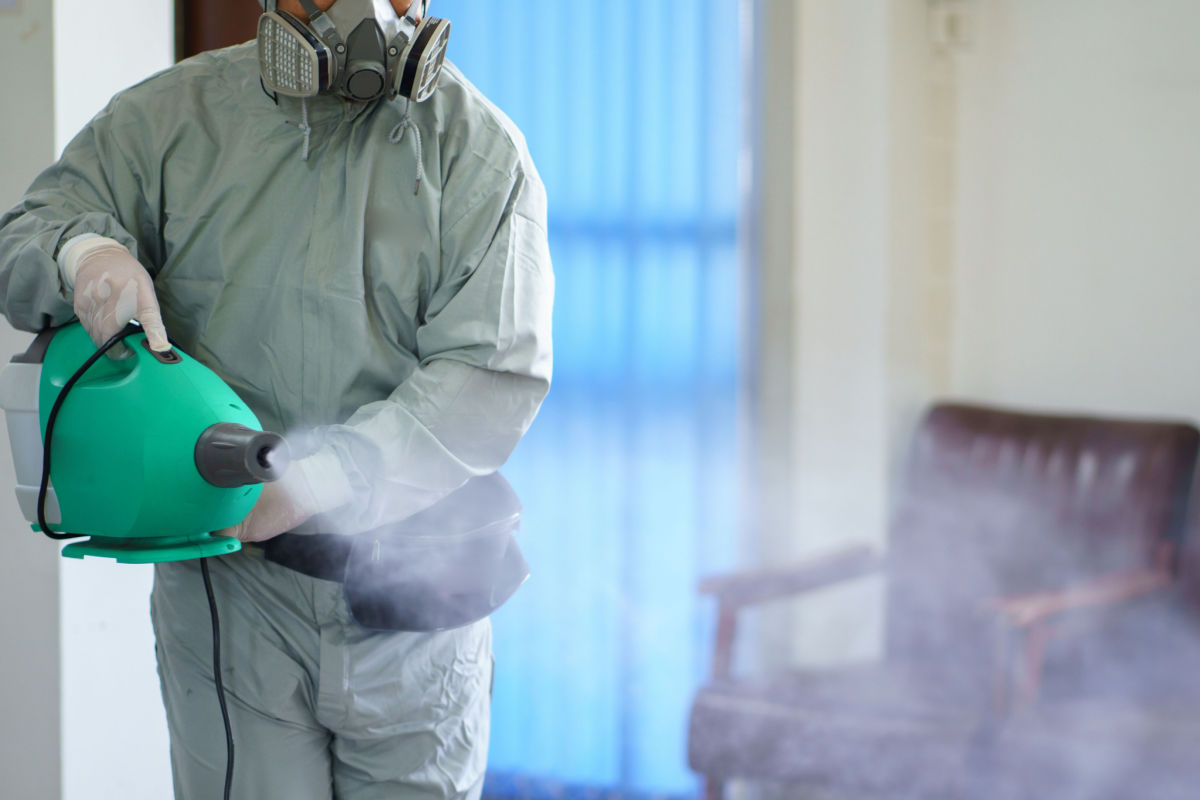
What is Monkey Pox?
First, we need to talk about what Monkey Pox is in the first place. Monkeypox is a viral zoonosis, which means it is a virus that spreads to humans from animals. It is caused by the monkeypox virus, from the same family of viruses as the variola virus (from smallpox). That makes Monkey Pox’s symptoms similar to smallpox, except monkeypox is milder and rarely leads to death. It was contained in the Central and West of Africa, but it has recently been spreading worldwide. The good news is that there are two types of monkeypox, one originating from Central Africa, which is severe, and one from West Africa, which is less severe.
The type that has been spreading through the world is the less severe type from West Africa. However, that does not mean that we shouldn’t be even a bit worried. Carriers of the monkeypox virus are rodents and nonhuman primates, but it spreads to humans, as we are seeing recently.
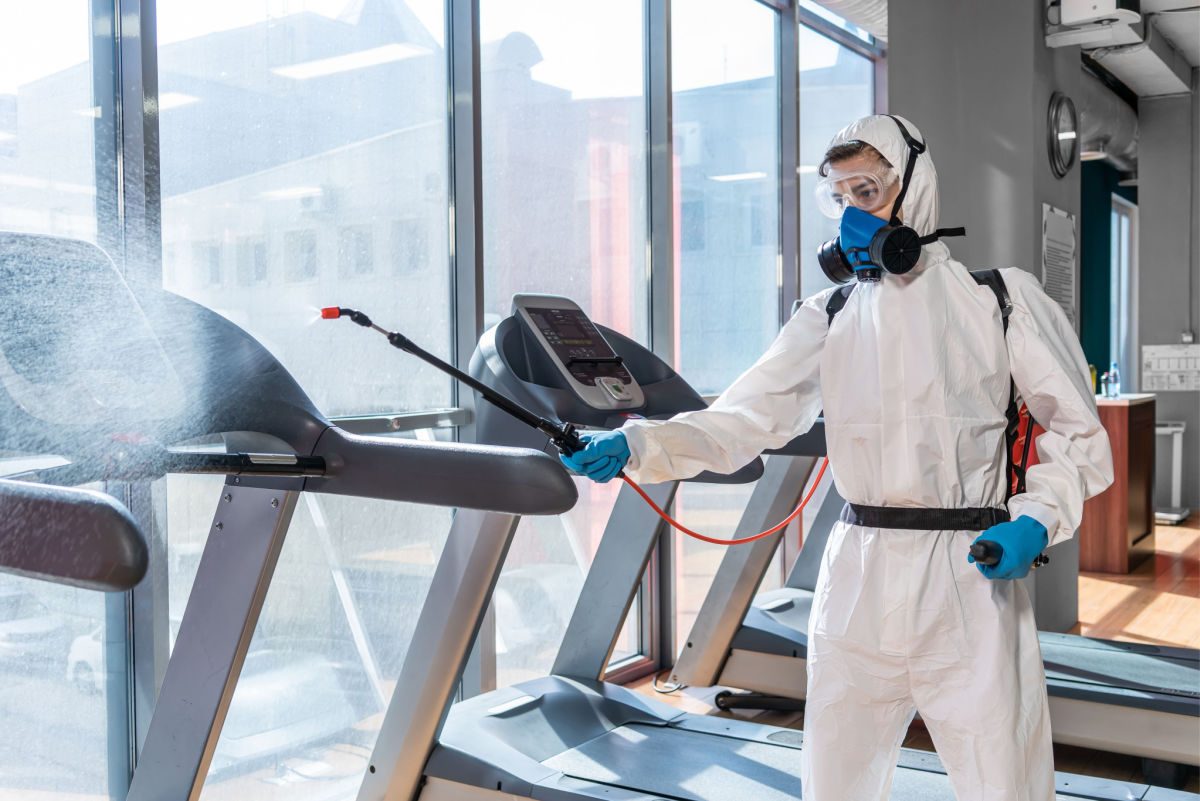
What are the symptoms and dangers of Monkey Pox?
Monkeypox symptoms typically start 6 to 13 days after exposure to the virus. However, it could also start from as little as 5 to 21 days. The illness lasts from 2 to 4 weeks and can range from mild to lethal, depending on the state. The symptoms start with fever, headaches, back pain, exhaustion, muscle aches, and breathing problems. The symptoms during this period can be a lot like the flu. Usually, from 1 to 4 days after the person develops the flu-like symptoms, they start seeing the typical rashes. Rashes are more common on the face and extremes of the body, like your hands and feet. It can then spread to other parts of the body. The monkeypox rashes go through different stages: They first develop as blisters, then fill with pus, and afterward scab over and fall off. These stages will happen over 2 to 4 weeks.
The casualty ratio of Monkey Pox currently ranges from 3 to 6% and has been higher among young children. Although Monkey Pox is not usually lethal, there are problems we need to look out for. Monkeypox can be fatal depending on access to health care and underlying medical issues. If you scratch or do not take proper care of the rash, Monkeypox can cause secondary infections. It can also develop into bronchopneumonia, sepsis, encephalitis, and severe dehydration. In addition, it could infect the cornea and lead to permanent vision loss. It is rare but possible that an individual with monkeypox will die due to problems of the disease. The rashes from monkeypox can also cause permanent scarring of the skin.
How does monkeypox spread?
Monkeypox can spread from animals to humans and from humans to humans. Although there are currently no reports of transmission from humans to animals, there are possible risks we must consider. When animals infect humans, the hosts are usually rodents and nonhuman primates. To avoid contracting monkeypox from an animal, one should avoid contact with wild animals. If you are in an endemic country with reported cases of monkeypox, you should thoroughly cook the meat you eat. This cooking will help to kill any remnant of the virus. People with suspected or confirmed monkeypox infection should avoid close contact with animals such as pets or livestock. Transmission from other humans is the most common type of transmission in the current global outbreak. It can happen on a lot of different fronts, but the most common ones are:
- Direct contact with a rash, scabs, or body fluids from someone who has developed monkeypox.
- Direct contact with objects, surfaces, and other infected places.
- Close contact with respiratory secretions and droplets from an infected person.
You probably will not develop monkeypox through casual chats but exposure to an infected person will put you at risk. The virus can survive for up to 2 weeks on different surfaces. This increases the chances of getting monkeypox from touching public surfaces and not washing your hands. The disease is not as infectious as the Coronavirus, but it can still easily spread in public, work, or overall commercial environments if the proper measures aren’t put into place. A person becomes infectious from the moment they show flu-like symptoms until all their rashes have scabbed over and healed. It is still unknown if an asymptomatic infection is possible, and what the rates are.
How is monkeypox prevented?
One can take preventive measures by washing their hands often and using alcohol-based hand rubs with at least 60% alcohol. You should also be careful with whom you remain in close physical contact. Disinfecting your home may be done using EPA-registered disinfectants and taking proper care using gloves and a mask. Infected material must be handled and disposed of carefully. If you live with someone who has gotten monkeypox, you should be very careful and wash your hands frequently. Likewise, you should wash beddings and other fabrics as the virus can live longer in porous materials. Family members can clean their house, as long as they are careful. This can be very effective even if one of the members is infected.
When taking care of a place with different people in movement, frequently coming and going, things get harder for individuals, managers, and owners. Your cleaning staff may have problems getting to all the hidden places where the monkeypox virus can hide and become a hazard for your clients and employees. As previously stated, the virus can live on surfaces for up to 2 weeks and might live even longer in colder climates and porous surfaces. Cleaning your commercial space is of extreme importance for the good functioning of your business.
As movement increases in peak hours, it gets harder to keep possible infections under control. This is because people of all types can navigate through that space. It is hard to know if someone is at the beginning of the infection though that does not mean they cannot spread the virus. Hiring a competent cleaning company that specializes in biohazard cleanup is the best option to clean up your commercial space. These materials must be cleaned and managed in specific ways to offer as little danger as possible.
Keep your clients and employees safe.
You are guaranteed to have your commercial space cleaned with the right product when you hire a professional cleaning company like Argus Restoration. We also ensure that every corner and crevice is disinfected correctly. Your cleaning staff often is not trained to handle highly infectious materials. A professional cleaning company focusing on biohazard cleanup knows how to clean and dispose of all types of contaminated objects. This includes fabrics, and other likely dangerous surfaces, so as not to endanger the people you need to keep safe. An outbreak in your commercial space can be very costly for you as an owner or manager. Therefore, it is vital to invest money to avoid the hefty costs of dealing with sick employees (or worse, customers).
Trusting professionals is always the best option to avoid disease and complications in your workplace. You will not regret the investment when you, your employees, and clients can come and go from your commercial space. This is without having to worry about whether or not you are all safe there.

